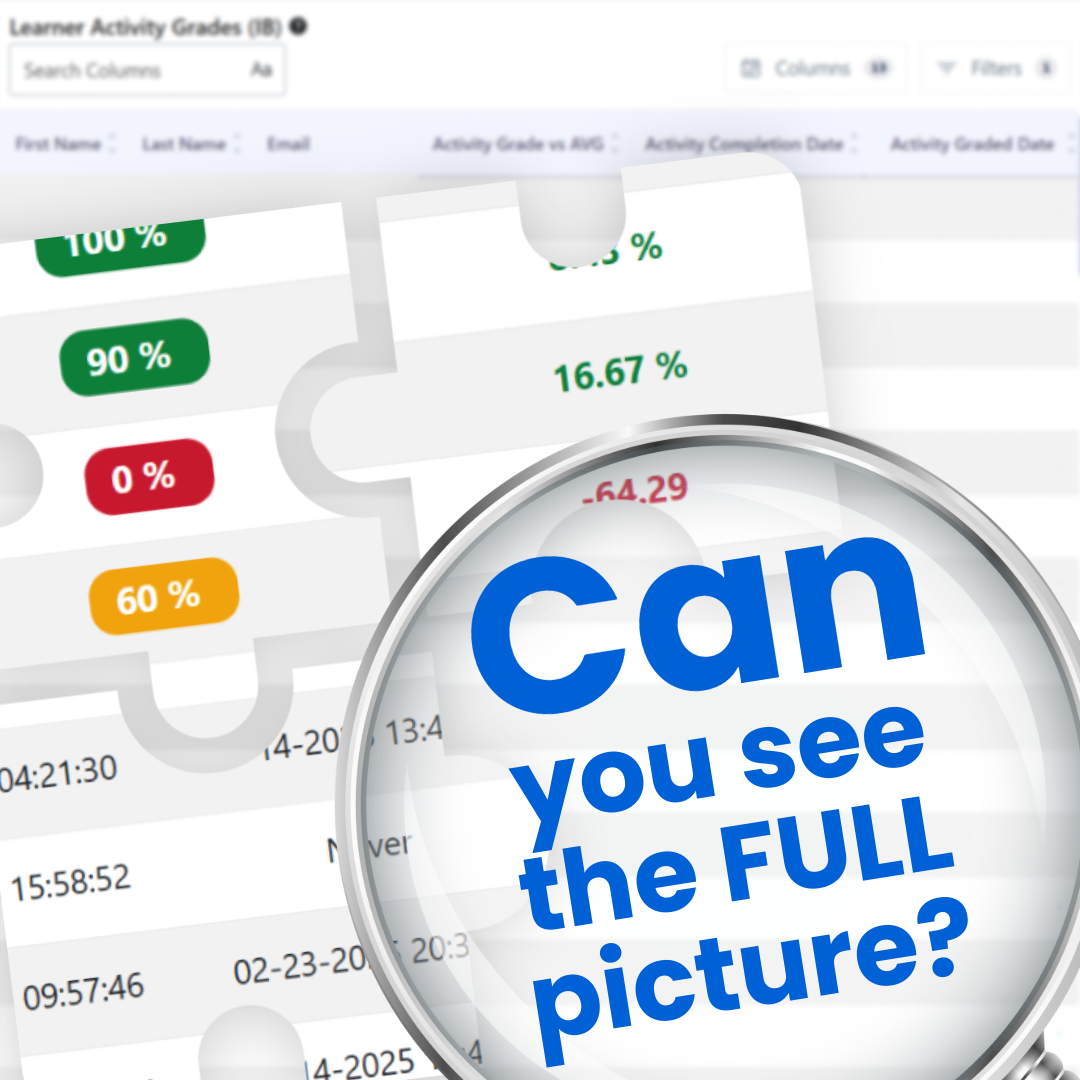Are your students feeling good about interacting with your Learning Management System (LMS)? Are they getting what they need from it? Of course, as educators, we tend to see an LMS from our perspective, which is understandable. Still, while instructors’ buy-in might initiate the success of an LMS, it can only succeed in the long run with learners’ continuous adoption and use.
Learner Experience Matters
How much do learners’ experiences interacting with your LMS matter to achieving the outcomes you and your students want? Frameworks such as the DeLone and McClean Model of Information Systems Success suggest that the learner experience matters *a lot.* If your students have a positive experience with your LMS in terms of system and service quality they’ll use the LMS more, which has a significant relationship with learning effectiveness (If you’re wondering why this might be, think cognitive load theory.).
Here’s the real kicker: the relationship of system and service quality with learning effectiveness exists regardless of the quality of the content contained in your LMS. So no matter how much everyone else might love your LMS, if learners find it difficult to navigate and thus are either not using it to its full potential or – worse – are avoiding it whenever possible, you’ve got a big problem on your hands even if you’ve got the best content on the planet.
Pitfalls of Learners Turning to Other Content
A recent study of medical students in a blended learning environment provides a great illustration of the potential pitfalls of students turning away from the material in an LMS because they prefer interacting with other sources of information. Missing integration of e-learning into teaching proved to be a significant issue for students in the study. Students valued lecture notes and Wikipedia as their most important online sources for knowledge acquisition. We can all agree that we’d be better off if these medical students’ LMSs were organized and integrated into the broader instructional design such that these future doctors preferred interacting with the medical school-sanctioned content in their LMSs to Wikipedia.
Is Your LMS Centering the Learner?
Factors that influence the success of an LMS adoption from the learners’ perspective include individual characteristics of learners, classmates, courses, instructors, and organizations; there’s not a one-size-fits-all approach to making an LMS work for all learners. So how do you know if your LMS truly functions as a holistic Learning Management System for your students rather than a simple administrative tool?
Thankfully, your LMS contains a whole mountain of data around this issue; unfortunately, that data might not be all that easy to extract and analyze. That’s where a data visualization system like IntelliBoard can help. Who’s logging into your course? How much time are they spending with each of the materials? What feedback are they giving you? How does all that correlate with course grades and instructor feedback?
Easy access to the right data can help you answer these critical questions in an actionable way, give you the confidence that your students’ needs and experiences are being centered, and help you avoid Wikipedia-in-lieu-of-LMS-interaction style pitfalls. The importance of making your LMS a true *Learning* Management System cannot be understated.
Are you interested in crafting stakeholder-centered Learning Analytics for your organization? Schedule a chat with us, take advantage of our webinars. We’d love to help you provide high-value analysis to your stakeholders.

Elizabeth Dalton measures and improves educational tools, processes, and results by using her experience in instruction and assessment design, development, documentation, and delivery, combined with her knowledge and expertise in technology and statistical methods.
Resources
Explore Learning Analytics Insights
Your LMS Shows Activity, Not Insight: Why LMS Analytics Fall Short
Can You See the Full Picture? Your LMS Shows Activity, Not Insight: Why LMS Analytics Fall Short Native LMS analytics have become a standard tool in high [...]
How Learners View Learning Analytics Impacting their Individual Success
Find out how learners view learning analytics impacting their performance by viewing their course progress through live dashboards.
Virtually Unstoppable
Explore why the strategic deployment of technology adopted in 2020 also must come with a more strategic use of data.




